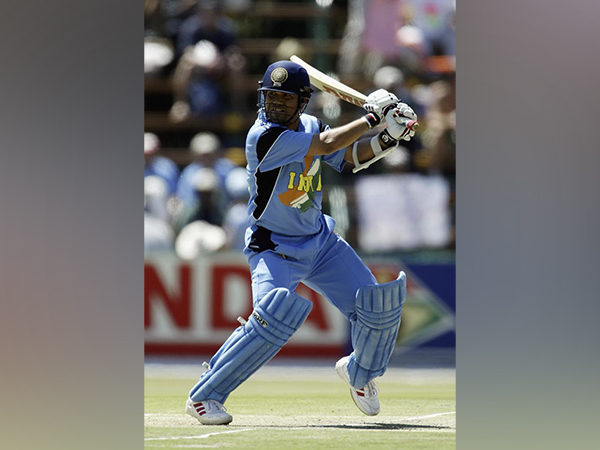E-Gaming Federation seeks whitelist, more enforcement on bad players
Jul 10, 2024

New Delhi [India], July 10 : The number of e-gaming participants in India has been on an ascent, and with it comes a potential threat to the safety of the users having a vibrant young demographic. With this in focus, Grant Thornton Bharat and the E-Gaming Federation (EGF) have released a whitepaper this week, primarily prioritizing adherence to a strong Code of Conduct and embracing self-regulation.
The Code of Conduct aims to address key risks -- cyber threats, regulatory uncertainties, and financial risks, offering best practices to mitigate these challenges and ensure the industry's growth. Gaming has different verticals - e-sports, real money gaming, casual gaming, and fantasy games, among others.
The Code of Conduct comes in to distinguish good from bad, desirable corporate behaviour from undesirable actions, and legitimate from illegitimate, said Chief Executive Officer of E-Gaming Federation, Anuraag Saxena.
EGF CEO, talking to ANI, called for a whitelist in the sector, which he believes will keep 'bad players' at bay. Additionally, he sees a strong need for enforcement against those 'bad players'.
As per definition, a whitelist is a list or register of entities that are being provided with a particular privilege, access, or recognition.
He also suggested that the gaming sector should be treated as any other sector without looking at it from a monolithic point of view.
Further, drawing a parallel between the content economy which is booming where creators are creating wealth, Anuraag said the same could happen to the gaming economy going ahead.
The whitepaper was unveiled on Tuesday by Prof (Dr) GS Bajpai, Vice Chancellor of National Law University, Delhi; Priyank Kanoongo, Chairperson, National Commission for Protection of Child Rights; and Anuraag Saxena, CEO, of E-Gaming Federation, and Grant Thorton officials.
The E-Gaming Federation (EGF), formed a few years ago, works to protect consumer interest and self-regulate the Indian e-gaming sector. EGF currently has about a dozen companies as members.
Asked about his expectations from the upcoming Budget session, he said the Federation's medium-term goal, not necessarily this Budget, is for the government to recognize the legitimate part of the industry.
"So we are hoping that which companies, which game formats are legitimate, consumers must get clarity on it," he added.
On mechanism to safeguard the interests of minors who are in the gaming space, Anuraag Saxena said, "EGF mandates Aadhaar, KYC etc etc. We reject members who do not adhere to these norms...We mandated a Code of Conduct on companies and the Grant Thorton team comes in and verifies whether that process works within companies. Grant Thorton conducted elaborate checks and balances and audits, at the company and the game level."
What needs to be done to make it more stringent, the EGF CEO said the best practices followed mandatorily by ethical companies should be mandated across the board. Otherwise, a player following stringent norms would lose market share to another who does not fully follow stringent KYC norms, by way of shifting users from one operator to another.
"Each of our members is rejecting customers based on this criterion (COC), which therefore is forcing consumers towards a grey market," he pointed out.
EGF CEO was asked what concerns the government has in particular in this sector, that may have come up during discussions with the Federation, he said "Government's concerns are industry's concerns. We are the only industry that is asking for more regulations."
Gambling platforms, minors, and vulnerable getting exposed to predators, and bad players in the market are concerns both for the government and the Federation.
Shalabh Saxena, Partner and Media Industry Leader, Grant Thornton Bharat, who worked on the whitepaper exercise, talking to ANI, said that the Code of Conduct is in-house to EGF and Grant Thorton is helping them set higher standards. Grant Thorton, he said, revalidated the EGF conduct criterion and suggested improvements or additional facets that may be included.
Asked where India is lacking particularly in the gaming sector, Shalabh Saxena said, "From a gaming sector perspective, the trigger for Code of Conduct was lack of regulatory clarity. Regulatory alignment, federal versus state, one ministry versus another, that is where I think India is lacking. But directionally we know that the government's intent is there, walking the path is something that is still a miss."
With robust IT infrastructure, soaring mobile penetration, and rapid advancements in artificial intelligence (AI), virtual reality (VR), AR-VR technologies, and the metaverse, this industry's growth trajectory is remarkable.
The number of online gamers in India soared to 442 million, establishing it as the second-largest gaming user base globally, surpassed only by China.
The industry is projected to experience a 20 per cent growth by 2024-25, reaching Rs 231 billion. Over the last five years, Indian gaming has raised USD 2.8 billion from domestic and global investors.
Boosted by the pandemic and an expanding user base, the global gaming industry is expected to reach USD 665.77 billion in the next five years, with India accounting for USD 8.92 billion.
Even after the 28 per cent GST implication, investor sentiment, the whitepaper asserts, remains strong in the industry, with several dealmakings. Following the 50th GST Council meeting on 11 July 2023, it was proposed to implement a uniform 28 per cent GST rate on the full-face value of online gaming, casinos, and horse racing.
The whitepaper noted that it was crucial to understand the distinction between games of skill and games of chance, to successfully regulate the real-money gaming ecosystem. The long-standing debate shapes the classification of games into two categories: games of skill and games of chance. Games of skill hinge on player abilities and decisions, while games of chance depend largely on random outcomes.
Under Indian law, games of skill are generally considered legal, while games of chance are considered illegal. This legal distinction is based on the degree to which skill versus chance influences the outcome of the game.
Currently, gaming in India is mostly regulated through central laws with the addition of state laws wherever applicable. As per the whitepaper, some states, such as Goa, allow licensed brick-and-mortar gaming activities. Others, such as Meghalaya, Nagaland, and Sikkim, have introduced licensing to regulate online gaming. The whitepaper asserted there is a growing consensus that federal-level regulation is necessary.




















